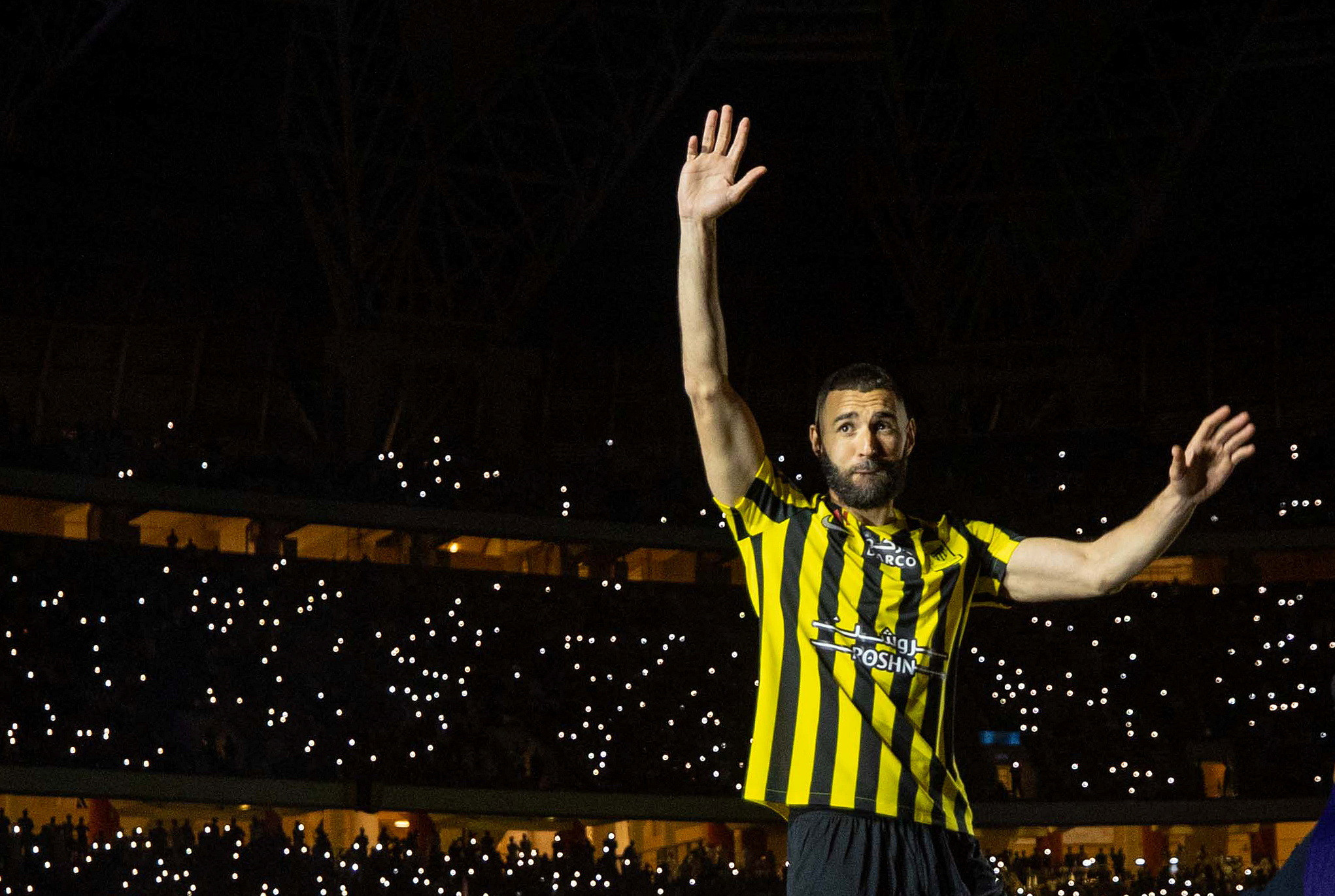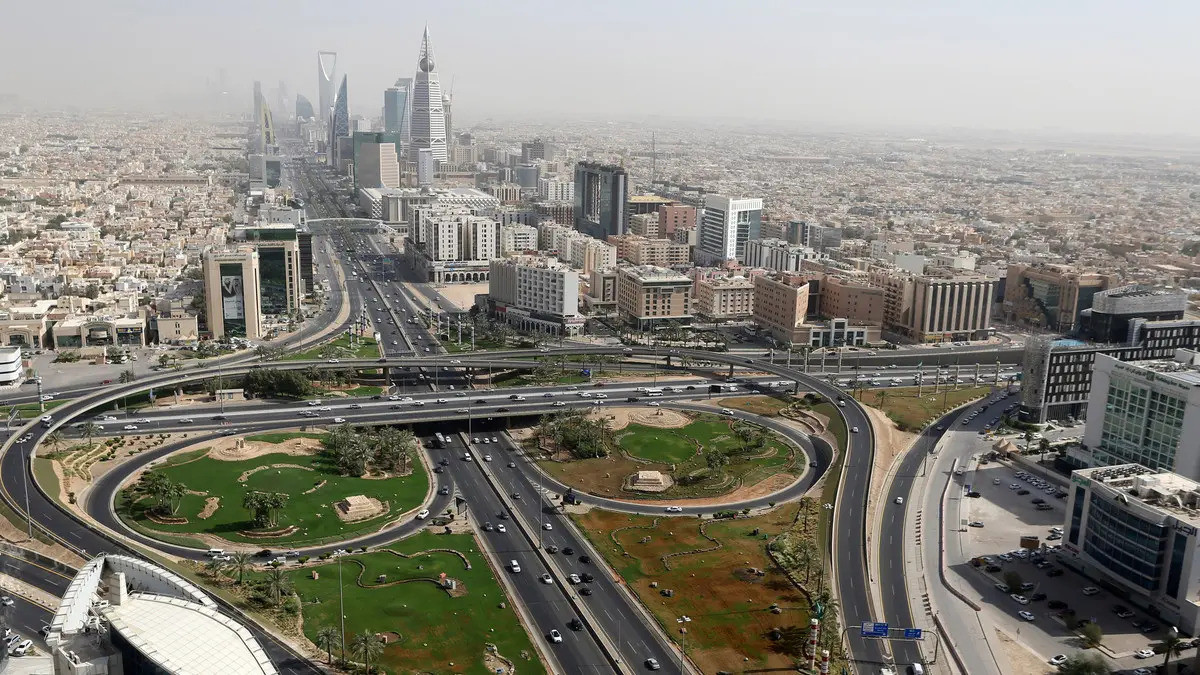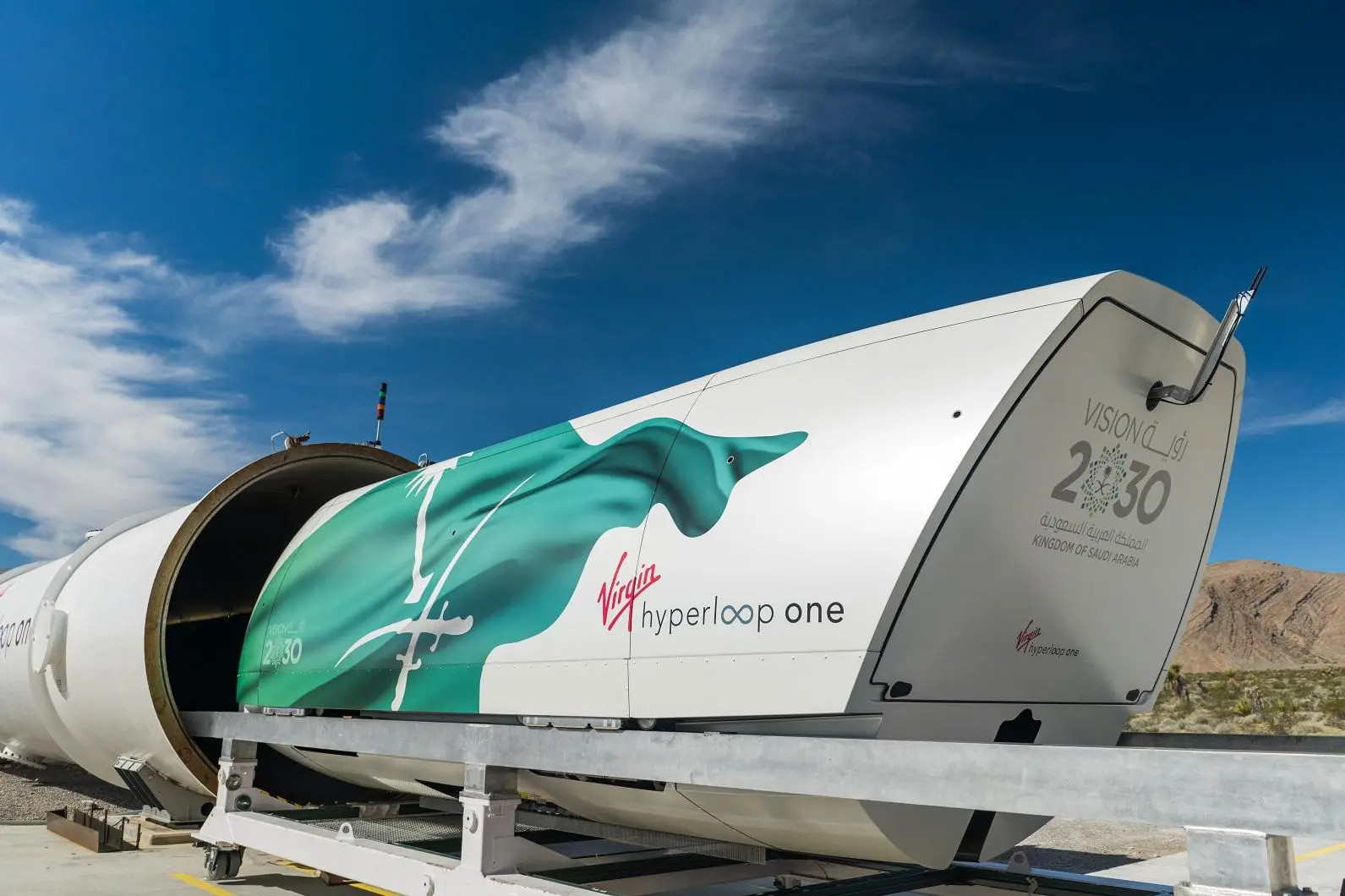For decades, Saudi Arabia has basked in the glory of an unparalleled oil boom, leveraging a handful of family-owned companies to amass riches and construct much of the nation's current infrastructure.
However, nearly fifty years after its initial success, and following yet another windfall from oil, Crown Prince Mohammed bin Salman (MBS), the de facto ruler of the country, is driving an ambitious agenda of economic diversification, aiming to reduce the nation's dependence on petrodollars. After consolidating his authority, MBS has firmly established his economic control and appears to be steering the economy away from its longstanding reliance on oil revenues.
A significant development occurred this June when the government in Riyadh, which is dominated by members of the Saudi Royal Family, entrusted the management of four premier domestic football teams to the Public Investment Fund (PIF), the kingdom's sovereign wealth fund. Experts who have observed the crown prince's actions, view this as part of a series of moves aimed at strengthening the financial foundation behind Saudi Arabia's ambitious aspirations to move away from the oil economy. The conversion of football clubs – Al Ittihad, Al Ahli, Al Hilal, and Al Nassr, where renowned Portuguese footballer Cristiano Ronaldo plays – into corporate entities represents another stride by the $600 billion sovereign wealth fund toward realising a post-oil economy, aligning with MBS's vision to diversify the nation's economic landscape.

Recent assessments reveal substantial investments, with some analysts suggesting that Saudi Arabia has allocated more than $6 billion to sports deals since early 2021. The kingdom's inaugural venture into international sports dates back to 2018 when the Saudi sports ministry secured a decade-long deal to exclusively host World Wrestling Entertainment (WWE) events, capturing attention due to its substantial financial impact – estimated at a whopping $100 million annually, representing around 10 percent of WWE's yearly earnings. According to experts, Saudi Arabia’s interest in sports is evidenced by its generous allocation of resources to a diverse range of events, spanning boxing, tennis, horse racing, and Formula One. Furthermore, Riyadh has made significant investment in luring top soccer players to join domestic teams with lucrative contracts. This highlights its ambition to establish a formidable presence in the global sports arena.
The execution of these investments has primarily flowed through the Public Investment Fund (PIF), which currently ranks as the world's fifth-largest sovereign wealth fund, as indicated by the Council on Foreign Relations (CFR). The PIF's strategic acquisitions include prominent soccer team Newcastle United, a contender in England's premier professional league, and the transition of former international rival LIV Golf into a collaborative partnership with the US-based PGA Tour.
These endeavors by MBS have not gone unnoticed. The crown prince has strategically accelerated the implementation of the Vision 2030 plan. Conceived in 2016, this ambitious initiative aims to diversify the Saudi economy beyond oil, encompassing hefty investments in both the sports and technology sectors. However, skeptics argue that the lavish spending on sports serves as a form of "sportswashing," deflecting criticisms of the Saudi Royal Family's domestic and foreign policies.

Dr Ashok Swain, a prominent professor of Peace and Conflict studies at Uppsala University, offers his perspective on MBS's economic shift. While acknowledging the intent to move away from oil revenues, Professor Swain expresses reservations regarding the heavy investments in sports and international events in Saudi Arabia. He believes that historically, such ventures have benefited individuals rather than the nation's image, and questions the broader impact of such endeavors.
According to a report by the Financial Times, the Saudi government seeks to establish a powerhouse domestic football league by attracting top footballers. The signing of Cristiano Ronaldo by Saudi Professional League (SPL) club Al Nassr for over $200 million annually marked a watershed, followed by high-profile signings like Karim Benzema, N’Golo Kanté, Roberto Firmino, and former Aston Villa manager Steven Gerrard. Saudi Arabia's investment to promote tourism, including a reported $25 million for footballer Lionel Messi's social media promotion, underscores the kingdom's determination.
Commenting on MBS's ambitious plan, Professor Swain highlights the crown prince's astute acknowledgement of the uncertainties surrounding Arab oil reserves' stability. “With the global emphasis on renewable energy and climate change mitigation, Saudi Arabia finds itself compelled to explore alternative economic avenues, a path that MBS is actively pursuing.”

This strategic shift, Professor Swain said, coincides with broader changes in the global power structure. “The kingdom is altering its approach, becoming more active on the foreign stage by de-escalating tensions with adversaries and embarking on extravagant domestic mega-projects.”
As Saudi Arabia's position on the world stage evolves, the kingdom's diplomatic alliances are undergoing a transformation. Historically linked to oil, Saudi Arabia's influence is also shifting. MBS also appears to be balancing relations with both China and the US, leveraging Saudi Arabia's unique geopolitical position to ensure its strategic importance.
As Saudi Arabia embraces this transformative journey, its ability to maneuver a changing global order remains crucial. While the era of Saudi Arabia's dominance solely through oil may wane, experts contend that its strategic significance and international influence can endure through skillful diplomacy, domestic stability, and adept leveraging of its unique strengths. As the kingdom embarks on a path to become a hub for tourism and business, the extent to which societal shifts accompany its economic evolution remains an open question.
On the personal front, despite facing setbacks, MBS's resurgence is undeniable. His adept navigation of global politics, combined with Saudi Arabia's vast resources and geopolitical influence, has reinstated him on the world stage. While challenges persist, particularly in the aftermath of the Khashoggi incident, experts suggest that MBS has successfully reclaimed his position. And as the global landscape continues to evolve, Saudi Arabia's ability to successfully navigate these shifts will ultimately determine its place in the new order.

Oil and influence
Throughout much of the world's recent history, the sway of Riyadh’s influence has been unmistakably intertwined with oil prices and supply dynamics. In 1973, Saudi Arabia spearheaded an Arab oil embargo against the US and other nations that backed Israel during that year's Arab-Israeli conflict, contributing to a recession in Western economies. Not too far in the past, specifically in 2019, drone attacks attributed to Yemen's Houthi rebels targeted two pivotal oil installations within the Arab kingdom. This calculated strike inflicted significant damage upon facilities responsible for processing the lion's share of Saudi Arabia's crude output, subsequently triggering disruptions in the global oil supply chain. The aftermath of this attack saw an instantaneous surge in oil prices as investors swiftly responded to the assault on one of Saudi Arabia's most critical oil facilities—responsible for generating approximately 10 percent of the world's oil supplies.
In 2016, MBS unveiled his strategic blueprint for diversifying the Arab kingdom's economy. Analysts believe that Saudi Arabia's influence on the global stage remains closely intertwined with its ability to consistently provide oil supply. When the crown prince introduced Vision 2030, he famously envisioned Saudi Arabia's potential to transition away from oil reliance by 2020. However, the reality has diverged from this aspiration.
"The opposite has happened as the Saudi authorities now find themselves needing to maintain oil prices at higher levels to generate the revenues to fund the giga-projects associated with Vision 2030," remarked Dr Kristian Coates Ulrichsen, a Middle East scholar at Rice University's Baker Institute for Public Policy. Attributing the situation to foreign investment levels in these projects falling notably below initial projections, Ulrichsen said: "Until the projects and the vision can independently generate revenues and become self-sustaining, Saudi Arabia is unlikely to meaningfully lessen its dependence on oil."
When asked about Saudi Arabia’s ability to maintain its influence on the world stage once it makes its economy less reliant on oil production, Dr Ulrichsen, whose expertise delves into the evolving roles of Persian Gulf states within the global order, stated: “This depends on worldwide energy transitions, and there exists a potential scenario wherein Saudi Arabia assumes an even more pivotal role in the global oil markets.”
Oil from Saudi fields, Dr Ulrichsen said, has a lower cost of production and fewer emissions. “This could conceivably be marketed as the ‘greenest’ form of oil in the world. Consequently, Saudi Arabia could potentially position itself as the most environmentally-friendly form of oil within a world that will continue to rely on oil for the foreseeable future."
With all that said, Saudi Arabia's robust oil production not only secures its position among the world's key power players but also furnishes the revenues that have facilitated opulent domestic developmental policies.

Post-oil economy challenges
According to Dr Kristian Coates Ulrichsen from Rice University's Baker Institute, Saudi authorities are currently reliant on oil revenues to secure the essential funding required for the monumental giga-projects that serve as the foundation of Vision 2030. However, this intricate balance could encounter heightened difficulties should other nations accelerate their own energy transitions.
Furthermore, Professor Ashok Swain of Uppsala University shares a similar perspective, suggesting that Saudi Arabia lacks a substantial financial cushion to effectively support its diversification endeavors and withstand potential economic downturns.
Dr Swain lists Saudi Arabia's human capital as another challenge: “Saudi Arabia has not adequately invested in developing its workforce. With much of the economic elite emerging from the oil sector and a significant reliance on foreign labor within the workforce, Saudi Arabia must prioritize cultivating domestic human capital to transition successfully into a post-oil economy.” According to Swain's perspective, maintaining the existing societal structure and economic framework will become a complex endeavor in the absence of a resilient oil-based economy.
Global alliances
Despite differences on human rights and the Arab-Israeli conflict, Washington DC and Riyadh maintain a close alliance that is now in its seventh decade. But this relationship was always based on an exchange: The US gave security guarantees to Saudi rulers, and they promised access to the kingdom’s vast oil reserves.
As per analysts, this arrangement has survived periodic conflicts. With Washington DC no longer entirely reliant on the kingdom’s oil, of late, the relationship’s moorings have weakened. When asked about Saudi Arabia’s diplomatic alliances after its transition, Professor Swain said: “The kingdom's significance on the global stage, previously tied to its oil wealth, will naturally wane. MBS is astute enough to comprehend this reality.” At this point, the Saudi Crown Prince, Professor Swain said, is less concerned about pleasing the US. “He is adeptly maneuvering geopolitics by engaging both China and the US.”
“This strategic shift involves playing the "China card" while maintaining ties with the US and potentially leveraging the strategic importance of Saudi Arabia, including its religious significance. Although Saudi Arabia's influence won't replicate its previous oil-based prominence, it can still hold sway through skillful diplomacy and exploiting its unique geopolitical position,” the Sweden-based academic explained.
Dr. Ulrichsen from the Baker Institute asserts that Saudi Arabia will remain a partner of the US. “Saudi authorities are increasingly clear that the kingdom is adopting more of a non-aligned position in international affairs that contrasts sharply with the role the country played during the Cold War when it was firmly a part of the anti-communist camp,” said the Middle East specialist.
"In the 2020s, Saudi Arabia under MBS is clearly conveying its unwillingness to align with any particular faction in the emerging era of intense great power competition and strategic rivalry. It intends to withstand external pressures to choose sides and instead aims to harmonize its associations to optimize benefits for the Saudi national interest," Dr. Ulrichsen elaborated.
According to Professor Swain, the key lies in MBS's skillful navigation of relations between China and the US while concurrently ensuring domestic stability. “Should this balance be achieved, the kingdom can sustain its capacity to exert international influence,” he added. In conclusion, the Sweden-based expert said: “Saudi Arabia's future hinges on its ability to navigate a changing global order.” While the kingdom’s dominance stemming solely from oil may diminish, Professor Swain believes its strategic importance and international influence can be upheld through adept political maneuvering, safeguarding domestic stability, and leveraging its unique assets.
Is tourism an option?
According to the Carnegie Endowment for International Peace, Saudi Arabia's strategic "Vision 2030" involves the implementation of extensive societal transformations to enhance the nation's attractiveness to tourists and global enterprises. In a bid to mirror the successes of Dubai and establish itself as an international epicenter for business and tourism, the kingdom recognized the allure within its expansive geography and proximity to the Red Sea.
Consequently, a substantial sum of $810 billion has been earmarked to foster the growth of the tourism sector in the forthcoming years. This initiative is anticipated to generate a notable three million jobs, with expatriates projected to account for two-thirds of these positions.
But can the kingdom attract tourism?
Baker Institute’s Dr. Ulrichsen shared a rather cautious response: “It remains to be seen whether any social and cultural changes will be limited to the giga-projects themselves, in which case they may be containable within a specifically defined area, or whether they will be part of a broader transition that covers Saudi society as a whole.”
“My guess is that the giga-projects will become enclaves of a sort, albeit ones that will be open for Saudis to participate in,” the Middle East expert explained.
To further broaden Saudi Arabia’s transition, the kingdom has increased the number of expats who live and work in the Kingdom from 30 percent to 50 percent. According to the Carnegie Endowment for International Peace, the government in Riyadh has introduced new schemes to allow foreigners permanent residency and access to economic benefits, such as the ability to start a business and invest in and purchase property. But moves like this, experts believe, will take years before any tangible results can be recorded.
MBS and the future
After being ostracised in the aftermath of the killing of Saudi journalist Jamal Khashoggi in 2018, MBS, the de facto leader of the kingdom, has staged an impressive resurgence. Experts point out that Prince Mohammed, aged 37, has defied predictions that his leadership was under peril, skillfully utilizing the nation's abundant wealth, its influence over global oil markets, and its pivotal position in the Arab and Islamic realms to elude recurrent attempts to isolate him internationally.
During his election campaign, President Biden had pledged to isolate Mohammed bin Salman and punish him for Khashoggi’s killing. This was followed by a stern warning from Biden of potential repercussions for opposing American preferences on oil policy.
Republican Senator Lindsey Graham labeled Prince Mohammed as a "wrecking ball" unfit to hold a leadership role on the global stage. Meanwhile, Jay Monahan, the head of golf's esteemed PGA Tour, indicated that players joining a competing Saudi-backed league were betraying the victims of the September 11 terrorist attacks—actions orchestrated by hijackers, most of whom were Saudi citizens.
Now, their words ring hollow; contrary to what was said about the crown prince’s fate, he has made a full recovery. “To all intents and purposes, the transition to MBS as de facto leader has already happened and been completed,” said Dr. Ulrichsen.
Any lingering repercussions faced by the Saudi Crown Prince, in relation to human rights concerns, such as the Jamal Khashoggi incident and the Yemen conflict, Dr. Ulrichsen explained, have substantially diminished. “This transformation notably transpired during 2020-21, and it was particularly accentuated by the full-scale Russian invasion of Ukraine in 2022. As a result, Mohammed bin Salman has resurfaced, reassuming a prominent role on the global stage,” the Middle East scholar added.
